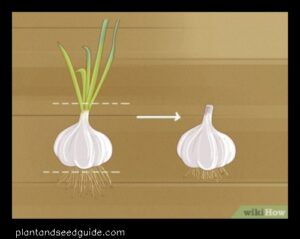Ammonium sulfate fertilizer is a powerful tool in the realm of agriculture, offering a plethora of benefits that can revolutionize crop production. But when is the best time to harness its potential, and why should farmers consider incorporating it into their practices? Let’s delve into the realm of ammonium sulfate fertilizer to uncover the secrets behind its efficacy.
- Boosting Nutrient Absorption: By leveraging the unique chemical structure of ammonium sulfate, plants can efficiently absorb essential nutrients, paving the way for robust growth and bountiful yields.
- Optimizing Soil pH: Through its ability to acidify soil, this fertilizer creates an ideal environment for certain crops to flourish, ensuring that plants receive the necessary conditions for success.
So, when should you apply this fertilizer to reap the maximum benefits? Understanding the seasonal nuances and compatibility with other fertilizers is key to unlocking the full potential of ammonium sulfate. By following strategic application guidelines, farmers can harness the explosive power of this fertilizer for unparalleled plant nutrition and growth.
What is Ammonium Sulfate Fertilizer?
Ammonium sulfate fertilizer is a crucial component in agricultural practices, renowned for its effectiveness in promoting plant growth and enhancing soil fertility.
Unlike some other fertilizers, ammonium sulfate is highly soluble, allowing for quick absorption by plant roots. This rapid uptake leads to immediate benefits for the plants, ensuring they receive the necessary nutrients for healthy growth. Additionally, the acidic nature of ammonium sulfate can help in lowering soil pH levels, creating a favorable environment for certain crops to thrive. Overall, this fertilizer plays a significant role in ensuring optimal plant nutrition and maximizing crop yields.This fertilizer consists of essential nutrients like nitrogen and sulfur, which are vital for the development of plants..

Benefits of Using Ammonium Sulfate
When it comes to the benefits of using Ammonium Sulfate fertilizer in agriculture, the advantages are truly remarkable. Let’s dive into why incorporating this fertilizer can make a significant difference in crop production:
- Increased Nutrient Uptake: Ammonium sulfate provides essential nutrients to plants in a readily available form, allowing for efficient absorption and utilization by crops.
- Improved Plant Growth: With its high nitrogen content, Ammonium Sulfate promotes vigorous plant growth, leading to healthier and more robust crops.
- Enhanced Soil Fertility: The sulfur content in Ammonium Sulfate helps in improving soil fertility, ensuring a nutrient-rich environment for plants to thrive.
These benefits collectively contribute to maximizing crop yields and overall agricultural productivity, making Ammonium Sulfate a valuable asset in modern farming practices.
Enhanced Nutrient Absorption
Enhanced Nutrient Absorption is a crucial aspect of using ammonium sulfate fertilizer in agriculture. The unique chemical structure of this fertilizer plays a significant role in promoting efficient absorption of nutrients by plants, ultimately leading to improved yields and plant health. By providing readily available nitrogen and sulfur in a form that is easily taken up by plants, ammonium sulfate ensures that crops receive the essential nutrients they need for robust growth and development.
When plants can absorb nutrients effectively, they are better equipped to withstand environmental stressors and produce higher quality yields. This enhanced nutrient absorption not only benefits the current crop but also contributes to the overall health of the soil, creating a sustainable environment for future plant growth. Farmers and gardeners alike can leverage the power of ammonium sulfate to optimize nutrient uptake and maximize the productivity of their crops.
Acidifying Soil pH
When it comes to acidifying soil pH, ammonium sulfate fertilizer plays a crucial role in creating the ideal environment for certain crops to thrive.
The acidifying properties of ammonium sulfate are particularly beneficial for crops that prefer acidic soil conditions, such as blueberries, rhododendrons, and azaleas.By lowering the pH levels of the soil, this fertilizer helps in making essential nutrients more available to plants, enhancing their overall growth and development..
Additionally, the acidifying effect of this fertilizer can help in combatting alkaline soil conditions, where pH levels are too high for optimal plant growth. By incorporating ammonium sulfate into your fertilization routine, you can effectively adjust the soil pH to meet the specific requirements of your crops, ensuring they receive the necessary nutrients for healthy and robust growth.
When to Apply Ammonium Sulfate
When to apply ammonium sulfate fertilizer is crucial for ensuring optimal plant nutrition and maximizing its benefits. Proper timing plays a significant role in the effectiveness of this fertilizer. Here are some key considerations to keep in mind:
- Seasonal Timing: Consider the growth stages of your crops and the prevailing weather conditions before applying ammonium sulfate. Different crops have varying nutrient requirements at different stages of growth.
- Soil Testing: Conduct soil tests to determine the current nutrient levels and pH of the soil. This information will help you adjust the application of ammonium sulfate accordingly.
- Plant Needs: Understand the specific nutrient requirements of the plants you are growing. Apply the fertilizer when the plants need it the most to support their growth and development.
- Integration with Other Fertilizers: If you are using multiple fertilizers, ensure that you understand how to integrate ammonium sulfate with them for optimal results. Some fertilizers may interact with each other, affecting their effectiveness.
Seasonal Application Strategies
When it comes to seasonal application strategies for ammonium sulfate fertilizer, timing is crucial for achieving optimal results in crop production.
Here are some key considerations to keep in mind:By understanding the specific needs of different crops during various growth stages, farmers can effectively utilize the benefits of this fertilizer to enhance plant growth and yield..
- Determine the growth stage of the crops: Assessing the growth stage of the crops is essential for deciding when to apply the fertilizer. Different crops have varying nutrient requirements at different stages of growth.
- Consider weather conditions: Weather plays a significant role in the effectiveness of fertilizer application. Avoid applying the fertilizer during heavy rainfall to prevent leaching and nutrient loss.
- Adjust application rates: Tailor the application rates of ammonium sulfate based on the specific needs of the crops and the soil conditions. Avoid over-application to prevent nutrient imbalances.
- Monitor soil moisture levels: Adequate soil moisture is crucial for nutrient uptake by plants. Ensure proper irrigation practices to maintain optimal soil moisture levels for efficient fertilizer absorption.
Compatibility with Other Fertilizers
When it comes to the compatibility of ammonium sulfate fertilizer with other fertilizers, it is essential to consider how different products interact to ensure optimal plant nutrition. Here are some key points to keep in mind:
- Chemical Interactions: Understanding the chemical properties of both ammonium sulfate and other fertilizers is crucial to avoid any negative reactions that may reduce their effectiveness.
- Application Methods: It is important to assess the application methods of different fertilizers to determine the best way to combine them without causing nutrient imbalances or wastage.
- Timing of Application: Timing plays a significant role in the compatibility of fertilizers. Coordinating the application schedules of various products can prevent nutrient leaching and ensure consistent plant nourishment.
By carefully evaluating these factors and considering the specific needs of your crops, you can effectively integrate ammonium sulfate fertilizer with other products to create a balanced and efficient fertilization plan.
Frequently Asked Questions
- What are the main benefits of using Ammonium Sulfate Fertilizer?
Ammonium Sulfate Fertilizer offers several benefits, including enhanced nutrient absorption by plants, improved plant growth, and the ability to lower soil pH levels for specific crops to thrive.
- When is the best time to apply Ammonium Sulfate?
The ideal timing for applying Ammonium Sulfate Fertilizer depends on various factors such as crop growth stages and weather conditions. It is crucial to follow seasonal application strategies for optimal results.
- Is Ammonium Sulfate compatible with other fertilizers?
Ammonium Sulfate can be integrated with different types of fertilizers to enhance plant nutrition. Understanding its compatibility with other fertilizers is essential for maximizing the benefits of combined applications.
- Wild Rose Country: Exploring Untamed Beauty - July 15, 2024
- Wildflower Nursery Decor: Bringing Nature Indoors - July 15, 2024
- Young Sprout of Grass: Nurturing New Life - July 15, 2024








